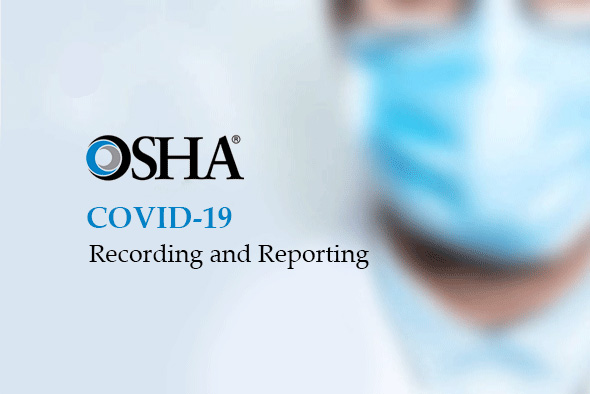To Record, or Not Record COVID-19 Illnesses on OSHA 300 Logs: An Employer’s Duty to Determine Job Relatedness During COVID-19
Typically, a communicable illness like COVID-19, if contracted at work, is a recordable illness for purposes of OSHA’s 300 Log. The big question becomes, as an employer, how do you know if your employee contracted COVID-19 at work?
On April 10, 2020, OSHA issued a directive (The April Directive) addressing work relatedness for COVID-19 cases. https://www.osha.gov/memos/2020-04-10/enforcement-guidance-recording-cases-coronavirus-disease-2019-COVID-19 The directive covers cases contracted up until May 26, 2020, and should be applied to any cases occurring prior to May 26, 2020. The April Directive issued guidelines for employers and the level of investigation into “work relatedness” the employer needed to pursue in recording a positive COVID-19 case.
OSHA recognized the difficulty for employers in making a “work relatedness” determination and stated it would exercise its discretion if an employer failed to record a COVID-19 case. OSHA’s discretion applied to all employers except those in high risk industries such as healthcare, emergency response organizations, law enforcement and correctional institutions. Employers not in these high risk industries were not required to make a “work relatedness” determination unless; 1) there was objective evidence the cases were work related such as a cluster of cases amongst co-workers in the same area, and 2) the evidence was reasonably available to the employer. Employers in the high risk industries were still tasked with making and performing a “work relatedness” determination. At this point in the COVID-19 crisis, OSHA was more concerned with employers implementing proper safety practices than figuring out if an employee contracted COVID-19 at work.
This enforcement policy will help employers focus their response efforts on implementing good hygiene practices in their workplaces, and otherwise mitigating COVID-19’s effects, rather than on making difficult work-relatedness decisions in circumstances where there is community transmission.
On May 19, 2020, OSHA issued a second directive (The May Directive) flipping the above on its head and requiring ALL employers to make a “work relatedness” determination regardless of industry. https://www.osha.gov/memos/2020-05-19/revised-enforcement-guidance-recording-cases-coronavirus-disease-2019-COVID-19 The May Directive took effect on May 26, 2020 and should be applied to cases falling on or after May 26, 2020. While stating that all employers must make the “work relatedness” determination, OSHA recognized that it remained difficult to determine whether a COVID-19 illness is work related especially for employees that may have been exposed both in and out of the work place.
To help guide employers OSHA put forth a list of considerations OSHA Compliance Safety and Health Officers (CSHO) would review to determine if the employer reasonably determined if the illness was work related. Below is a synopsis of the factors published in The May Directive. CSHOs are to consider:
- The reasonableness of the employer's investigation into work-relatedness. Smaller employers will not be expected to perform extensive medical inquiries due to lack of expertise and privacy concerns. OSHA has stated it will be sufficient for employers (1) to ask the employee how he believes he contracted the COVID-19 illness; (2) as practical as possible discuss the employee’s outside activities while respecting their privacy; and (3) review the employee's work environment for potential exposure paying particular attention to other employees that may have contracted the illness.
- The evidence available to the employer. This requirement simply means what the employer knows at the time of learning the employee contracted the illness or may learn later about the exposure.
- The evidence that a COVID-19 illness was contracted at work. OHSA specifically lists factors that weigh for or against “work relatedness.”
- COVID-19 illnesses are likely work related when several cases develop among workers who work closely together and there is no alternative explanation.
- An employee's COVID-19 illness is likely work related if it is contracted shortly after lengthy, close exposure to a particular customer or coworker who has a confirmed case of COVID-19 and there is no alternative explanation.
- An employee's COVID-19 illness is likely work related if his job duties include having frequent, close exposure to the general public in a locality with ongoing community transmission and there is no alternative explanation.
- An employee's COVID-19 illness is likely NOT work related if she is the only worker to contract COVID-19 in her vicinity and her job duties do not include having frequent contact with the general public, regardless of the rate of community spread.
- An employee's COVID-19 illness is likely NOT work related if he, outside the workplace, closely and frequently associates with someone who is likely infectious.
- CSHOs will weigh and consider evidence or “work relatedness” provided by medical providers, public health authorities, or the employee herself.
If, after considering the above, an employer cannot determine whether it is more likely than not the employee contracted COVID-19 at work, the employer does not need to record the illness on OSHA’s 300 Log.
With the opening of public businesses, employers must interview and question employees regarding their whereabouts and look to the above factors to make a reasonable “work related” determination. If you have any questions or concerns regarding the recording of COVID-19 illnesses please contact Meredith Ullman.

